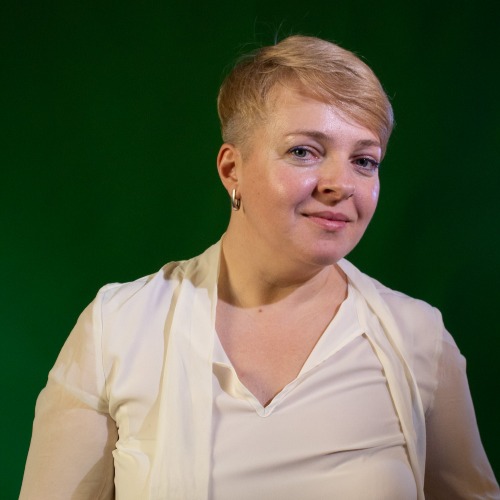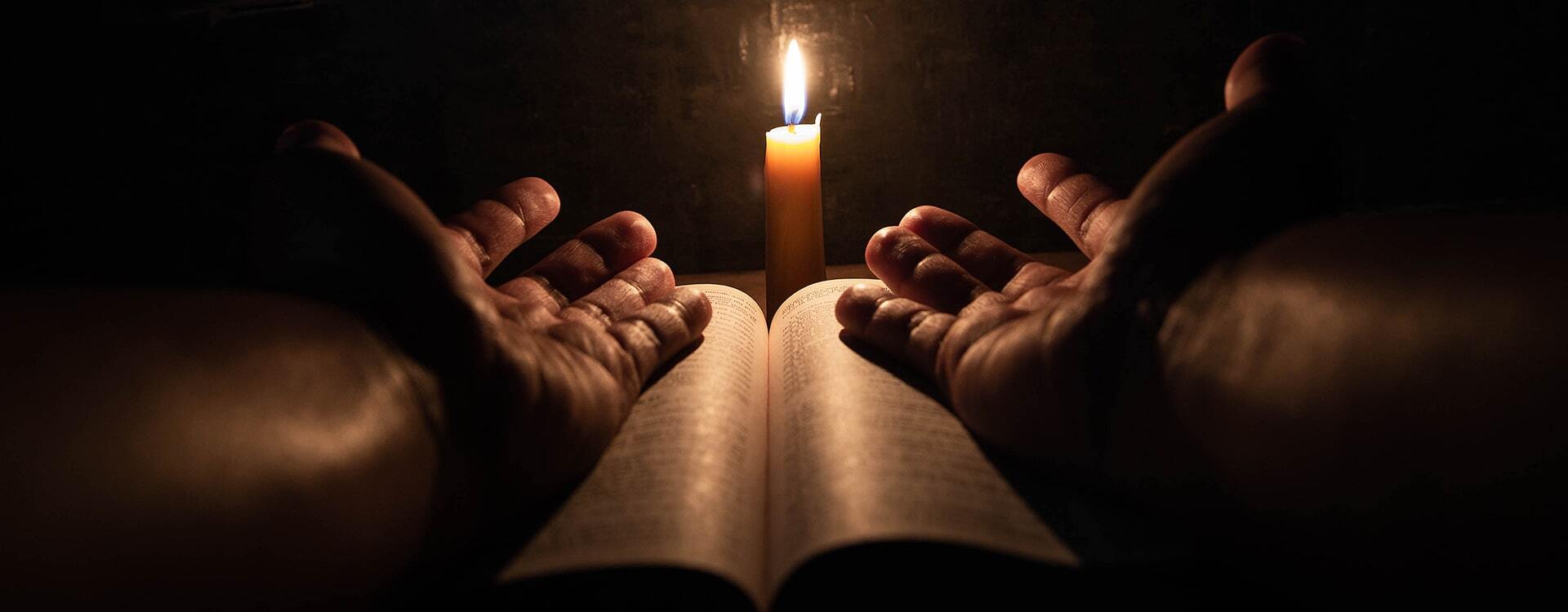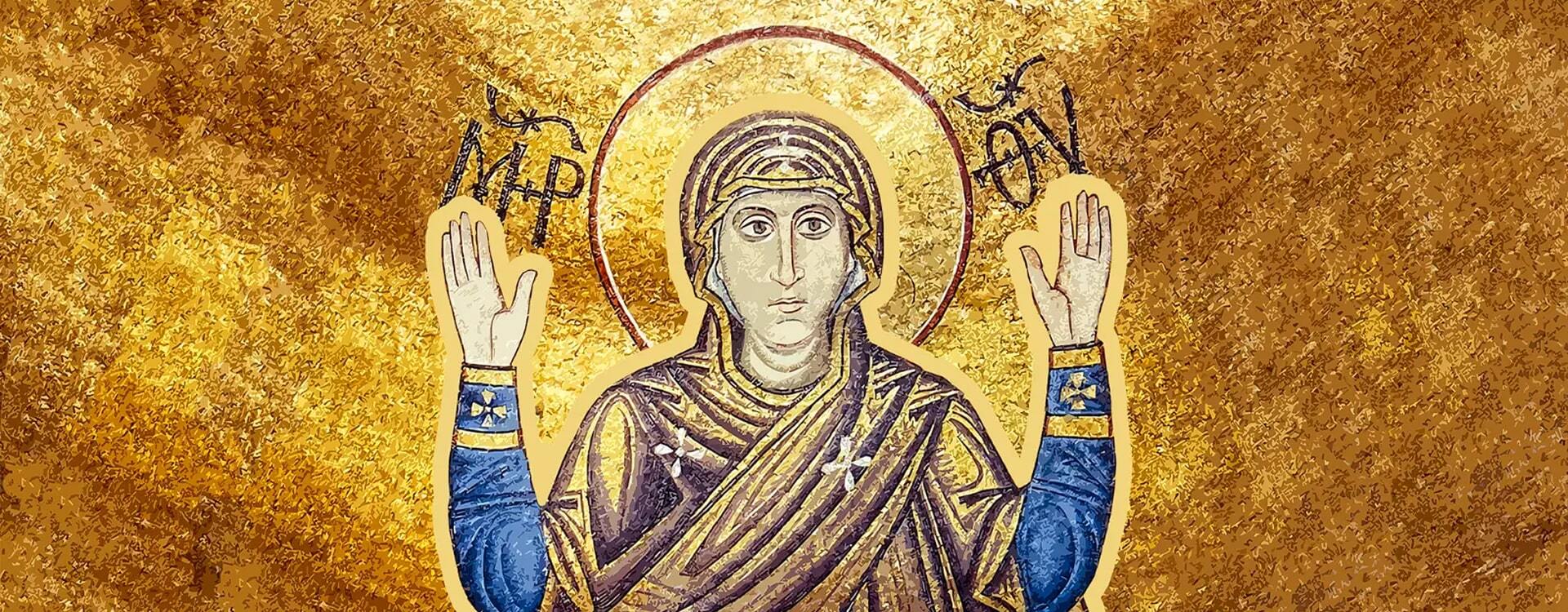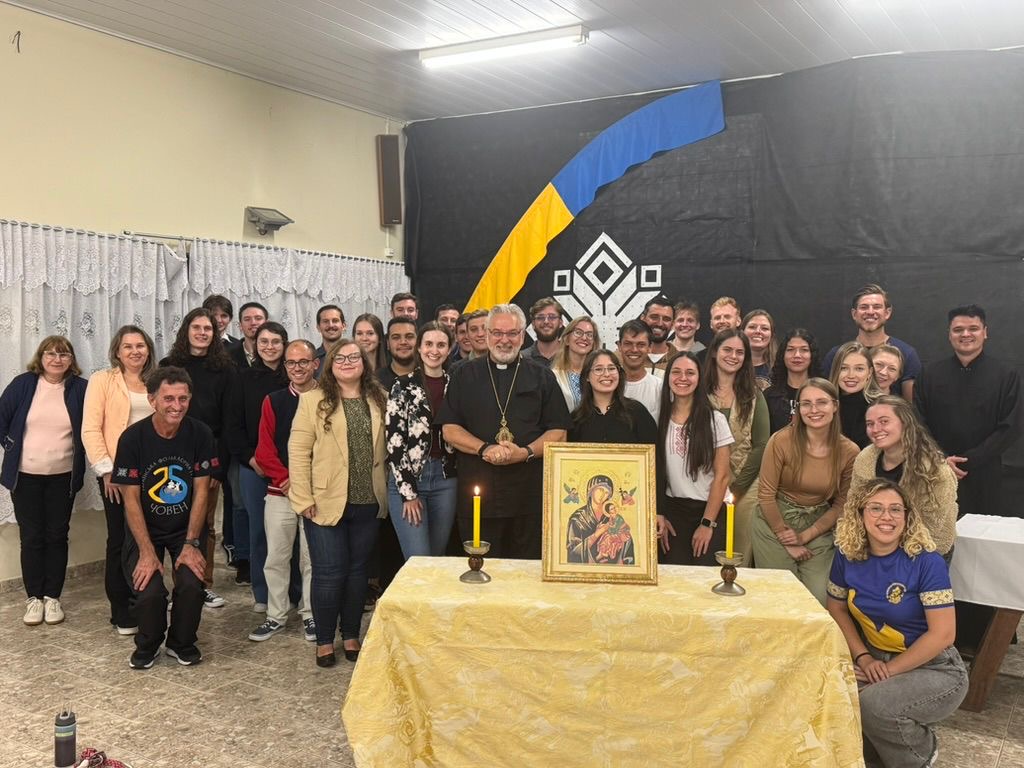Ексклюзив
MONK’S LIFE AND WHAT LEADS TO IT
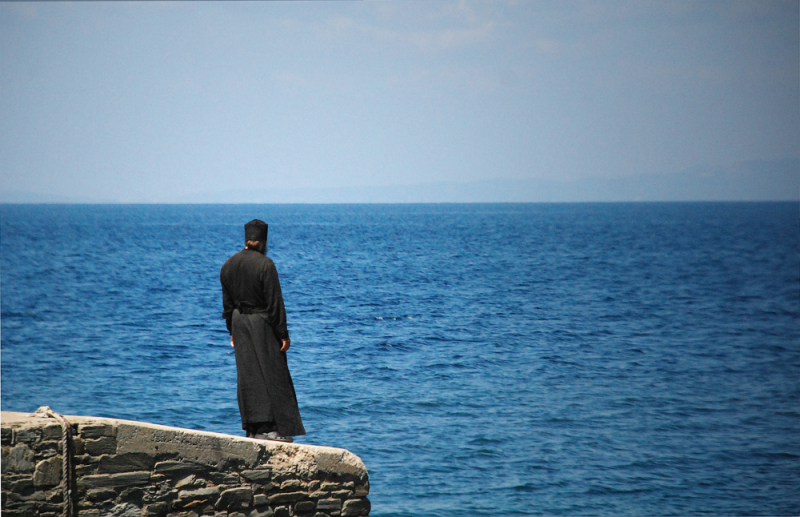
It is somewhat distant from the world in turmoil and even, to a certain extent, mysterious, full of enigmas and absence of understanding. Monk’s life … How is it? What should happen for a person to suddenly realize — I want to dedicate myself to God so much as to move away from the ordinary lifestyle?
 How do people pave their ways to monasteries?
Father Alipiy, residing in the territory of the Svyato-Uspenska Univska Lavra, responsible for novices, has shared some information about the stages people who have made up their minds to dedicate their lives to monkhood go through:
— First of all, for the person to come to a monastery (s)he must have a calling from God. That is an inner wish. It is very rare, since there are few people who choose this type of life — spiritual fight with oneself. But, as Jesus says in the Gospel: ‘You did not choose me, but I chose you’ (John 15, 16). When we are approached by young men, our primary task is to help them understand whether that is their real calling or a romantic appeal for them, or whether it happens for any other reasons. There is enough time for that. At first we accept the person as a guest, for him to have enough time and opportunities to make up his mind whether he would like to stay here further. Then he stays here as a candidate already. All that time this man with our brothers attends the masses, meals still in secular clothing. The period of candidacy lasts from six months to a year. Over this period he still tries himself out and we also watch him, whether there is any monk spirit in him, a calling and a wish to live in our community. It may happen that a person wants to be a monk, but he wants to live under this or that order. Then, maybe, another monk community will suit him more. After the candidate is approved, the man makes a request to be admitted to his first monastic vows. Then voting takes place at the general council, where all the monks who have professed till the end of their days decide whether to admit him to his first monastic vows, but that is not yet a full monastic vow. Only then a monk candidate gets a cassock, a leather belt and a skoufos (headwear) and takes his first temporary vows — celibate, fasting and asceticism for a year. The second temporary vows are also given for a year, and thus it happens at least three times. And only after that he may be allowed to take his eternal vows. Preparation for this lasts at least for five years.
How do people pave their ways to monasteries?
Father Alipiy, residing in the territory of the Svyato-Uspenska Univska Lavra, responsible for novices, has shared some information about the stages people who have made up their minds to dedicate their lives to monkhood go through:
— First of all, for the person to come to a monastery (s)he must have a calling from God. That is an inner wish. It is very rare, since there are few people who choose this type of life — spiritual fight with oneself. But, as Jesus says in the Gospel: ‘You did not choose me, but I chose you’ (John 15, 16). When we are approached by young men, our primary task is to help them understand whether that is their real calling or a romantic appeal for them, or whether it happens for any other reasons. There is enough time for that. At first we accept the person as a guest, for him to have enough time and opportunities to make up his mind whether he would like to stay here further. Then he stays here as a candidate already. All that time this man with our brothers attends the masses, meals still in secular clothing. The period of candidacy lasts from six months to a year. Over this period he still tries himself out and we also watch him, whether there is any monk spirit in him, a calling and a wish to live in our community. It may happen that a person wants to be a monk, but he wants to live under this or that order. Then, maybe, another monk community will suit him more. After the candidate is approved, the man makes a request to be admitted to his first monastic vows. Then voting takes place at the general council, where all the monks who have professed till the end of their days decide whether to admit him to his first monastic vows, but that is not yet a full monastic vow. Only then a monk candidate gets a cassock, a leather belt and a skoufos (headwear) and takes his first temporary vows — celibate, fasting and asceticism for a year. The second temporary vows are also given for a year, and thus it happens at least three times. And only after that he may be allowed to take his eternal vows. Preparation for this lasts at least for five years.
 How do you identify a calling?
Sister Davyda Fedan, Sisters-Servants of the Immaculate Virgin Mary, administrative assistant of the Department of Church Commissions of the UGCC, has shared her own emotions related to feeling God’s calling:
— Normally Christ touches a person via pain. Since when everything is fine, you are satisfied with everything, and Christ is far away from you. And when you feel lack of something — attention, love, you feel you are not understood — that is when God may touch you. That often happens in prayers, when you feel such pinching pain that tears start running down you cheeks, and you fell deep anxiety, as a visible touch of God. When a person has got this touch — (s)he goes to the monastery. Highly imperfect and wounded. But that does not mean that the person runs away, the person just wants Christ to heal him or her.
Then, certainly, you go through certain moments of development, re-consideration of your life, of how Christ has touched you, you try to change. Only in this way, gradually and deeply realizing everything, you undergo the healing. And already after that you can go to people and tell them about your healing because you know — Christ can heal others as well, and you are a real witness of God’s presence since you have lived through those changes in your own life.
If this is not God’s touch, you will not stand it. Since in monkhood people are called to be joyful, and not to suffer. And even in complicated times you know that God is unambiguous in His decisions. He does not change His mind, therefore, if He has chosen you, has come to love you, then the sufferings in your life are there for your growth only.
How do you identify a calling?
Sister Davyda Fedan, Sisters-Servants of the Immaculate Virgin Mary, administrative assistant of the Department of Church Commissions of the UGCC, has shared her own emotions related to feeling God’s calling:
— Normally Christ touches a person via pain. Since when everything is fine, you are satisfied with everything, and Christ is far away from you. And when you feel lack of something — attention, love, you feel you are not understood — that is when God may touch you. That often happens in prayers, when you feel such pinching pain that tears start running down you cheeks, and you fell deep anxiety, as a visible touch of God. When a person has got this touch — (s)he goes to the monastery. Highly imperfect and wounded. But that does not mean that the person runs away, the person just wants Christ to heal him or her.
Then, certainly, you go through certain moments of development, re-consideration of your life, of how Christ has touched you, you try to change. Only in this way, gradually and deeply realizing everything, you undergo the healing. And already after that you can go to people and tell them about your healing because you know — Christ can heal others as well, and you are a real witness of God’s presence since you have lived through those changes in your own life.
If this is not God’s touch, you will not stand it. Since in monkhood people are called to be joyful, and not to suffer. And even in complicated times you know that God is unambiguous in His decisions. He does not change His mind, therefore, if He has chosen you, has come to love you, then the sufferings in your life are there for your growth only.
 And what, if doubts come?
— When it seems to people that they are not ready, that is already a temptation. Since if we wait for complete readiness, we will never come to that. Another thing is that Christ does not need us to be perfect, He makes us perfect gradually. Many people yield to this temptation. They see their faults, deficiencies that give rise to fear, and reject their decision. People often think that perfect individuals go to monasteries — that is a wrong vision.
A person, by essence, cannot be holy. We come to Christ for Him to change us. Change starts with your meeting with God. A calling is not a real state of holiness, but a God’s touch: right, you are not like Him, you are not perfect, you have some emotions, but I need you.
Nataliya PAVLYSHYN
And what, if doubts come?
— When it seems to people that they are not ready, that is already a temptation. Since if we wait for complete readiness, we will never come to that. Another thing is that Christ does not need us to be perfect, He makes us perfect gradually. Many people yield to this temptation. They see their faults, deficiencies that give rise to fear, and reject their decision. People often think that perfect individuals go to monasteries — that is a wrong vision.
A person, by essence, cannot be holy. We come to Christ for Him to change us. Change starts with your meeting with God. A calling is not a real state of holiness, but a God’s touch: right, you are not like Him, you are not perfect, you have some emotions, but I need you.
Nataliya PAVLYSHYN
Читай українською: МОНАШЕ ЖИТТЯ І ЩО ДО НЬОГО СПОНУКАЄ
 How do people pave their ways to monasteries?
Father Alipiy, residing in the territory of the Svyato-Uspenska Univska Lavra, responsible for novices, has shared some information about the stages people who have made up their minds to dedicate their lives to monkhood go through:
— First of all, for the person to come to a monastery (s)he must have a calling from God. That is an inner wish. It is very rare, since there are few people who choose this type of life — spiritual fight with oneself. But, as Jesus says in the Gospel: ‘You did not choose me, but I chose you’ (John 15, 16). When we are approached by young men, our primary task is to help them understand whether that is their real calling or a romantic appeal for them, or whether it happens for any other reasons. There is enough time for that. At first we accept the person as a guest, for him to have enough time and opportunities to make up his mind whether he would like to stay here further. Then he stays here as a candidate already. All that time this man with our brothers attends the masses, meals still in secular clothing. The period of candidacy lasts from six months to a year. Over this period he still tries himself out and we also watch him, whether there is any monk spirit in him, a calling and a wish to live in our community. It may happen that a person wants to be a monk, but he wants to live under this or that order. Then, maybe, another monk community will suit him more. After the candidate is approved, the man makes a request to be admitted to his first monastic vows. Then voting takes place at the general council, where all the monks who have professed till the end of their days decide whether to admit him to his first monastic vows, but that is not yet a full monastic vow. Only then a monk candidate gets a cassock, a leather belt and a skoufos (headwear) and takes his first temporary vows — celibate, fasting and asceticism for a year. The second temporary vows are also given for a year, and thus it happens at least three times. And only after that he may be allowed to take his eternal vows. Preparation for this lasts at least for five years.
How do people pave their ways to monasteries?
Father Alipiy, residing in the territory of the Svyato-Uspenska Univska Lavra, responsible for novices, has shared some information about the stages people who have made up their minds to dedicate their lives to monkhood go through:
— First of all, for the person to come to a monastery (s)he must have a calling from God. That is an inner wish. It is very rare, since there are few people who choose this type of life — spiritual fight with oneself. But, as Jesus says in the Gospel: ‘You did not choose me, but I chose you’ (John 15, 16). When we are approached by young men, our primary task is to help them understand whether that is their real calling or a romantic appeal for them, or whether it happens for any other reasons. There is enough time for that. At first we accept the person as a guest, for him to have enough time and opportunities to make up his mind whether he would like to stay here further. Then he stays here as a candidate already. All that time this man with our brothers attends the masses, meals still in secular clothing. The period of candidacy lasts from six months to a year. Over this period he still tries himself out and we also watch him, whether there is any monk spirit in him, a calling and a wish to live in our community. It may happen that a person wants to be a monk, but he wants to live under this or that order. Then, maybe, another monk community will suit him more. After the candidate is approved, the man makes a request to be admitted to his first monastic vows. Then voting takes place at the general council, where all the monks who have professed till the end of their days decide whether to admit him to his first monastic vows, but that is not yet a full monastic vow. Only then a monk candidate gets a cassock, a leather belt and a skoufos (headwear) and takes his first temporary vows — celibate, fasting and asceticism for a year. The second temporary vows are also given for a year, and thus it happens at least three times. And only after that he may be allowed to take his eternal vows. Preparation for this lasts at least for five years.
 How do you identify a calling?
Sister Davyda Fedan, Sisters-Servants of the Immaculate Virgin Mary, administrative assistant of the Department of Church Commissions of the UGCC, has shared her own emotions related to feeling God’s calling:
— Normally Christ touches a person via pain. Since when everything is fine, you are satisfied with everything, and Christ is far away from you. And when you feel lack of something — attention, love, you feel you are not understood — that is when God may touch you. That often happens in prayers, when you feel such pinching pain that tears start running down you cheeks, and you fell deep anxiety, as a visible touch of God. When a person has got this touch — (s)he goes to the monastery. Highly imperfect and wounded. But that does not mean that the person runs away, the person just wants Christ to heal him or her.
Then, certainly, you go through certain moments of development, re-consideration of your life, of how Christ has touched you, you try to change. Only in this way, gradually and deeply realizing everything, you undergo the healing. And already after that you can go to people and tell them about your healing because you know — Christ can heal others as well, and you are a real witness of God’s presence since you have lived through those changes in your own life.
If this is not God’s touch, you will not stand it. Since in monkhood people are called to be joyful, and not to suffer. And even in complicated times you know that God is unambiguous in His decisions. He does not change His mind, therefore, if He has chosen you, has come to love you, then the sufferings in your life are there for your growth only.
How do you identify a calling?
Sister Davyda Fedan, Sisters-Servants of the Immaculate Virgin Mary, administrative assistant of the Department of Church Commissions of the UGCC, has shared her own emotions related to feeling God’s calling:
— Normally Christ touches a person via pain. Since when everything is fine, you are satisfied with everything, and Christ is far away from you. And when you feel lack of something — attention, love, you feel you are not understood — that is when God may touch you. That often happens in prayers, when you feel such pinching pain that tears start running down you cheeks, and you fell deep anxiety, as a visible touch of God. When a person has got this touch — (s)he goes to the monastery. Highly imperfect and wounded. But that does not mean that the person runs away, the person just wants Christ to heal him or her.
Then, certainly, you go through certain moments of development, re-consideration of your life, of how Christ has touched you, you try to change. Only in this way, gradually and deeply realizing everything, you undergo the healing. And already after that you can go to people and tell them about your healing because you know — Christ can heal others as well, and you are a real witness of God’s presence since you have lived through those changes in your own life.
If this is not God’s touch, you will not stand it. Since in monkhood people are called to be joyful, and not to suffer. And even in complicated times you know that God is unambiguous in His decisions. He does not change His mind, therefore, if He has chosen you, has come to love you, then the sufferings in your life are there for your growth only.
 And what, if doubts come?
— When it seems to people that they are not ready, that is already a temptation. Since if we wait for complete readiness, we will never come to that. Another thing is that Christ does not need us to be perfect, He makes us perfect gradually. Many people yield to this temptation. They see their faults, deficiencies that give rise to fear, and reject their decision. People often think that perfect individuals go to monasteries — that is a wrong vision.
A person, by essence, cannot be holy. We come to Christ for Him to change us. Change starts with your meeting with God. A calling is not a real state of holiness, but a God’s touch: right, you are not like Him, you are not perfect, you have some emotions, but I need you.
Nataliya PAVLYSHYN
And what, if doubts come?
— When it seems to people that they are not ready, that is already a temptation. Since if we wait for complete readiness, we will never come to that. Another thing is that Christ does not need us to be perfect, He makes us perfect gradually. Many people yield to this temptation. They see their faults, deficiencies that give rise to fear, and reject their decision. People often think that perfect individuals go to monasteries — that is a wrong vision.
A person, by essence, cannot be holy. We come to Christ for Him to change us. Change starts with your meeting with God. A calling is not a real state of holiness, but a God’s touch: right, you are not like Him, you are not perfect, you have some emotions, but I need you.
Nataliya PAVLYSHYN
ПІДТРИМАЙТЕ ДИВЕН СВІТ
Разом ми можемо більше! Зробіть свій внесок у розвиток нашого
проєкту.
проєкту
ЧИТАЙТЕ ТАКОЖ

МАЄТЕ ЦІКАВУ ІНФОРМАЦІЮ ДЛЯ НАС?
Ми відкриті для ваших новин, і разом можемо створювати цікаві
матеріали для нашої спільноти.
Хочу запропонувати новину








